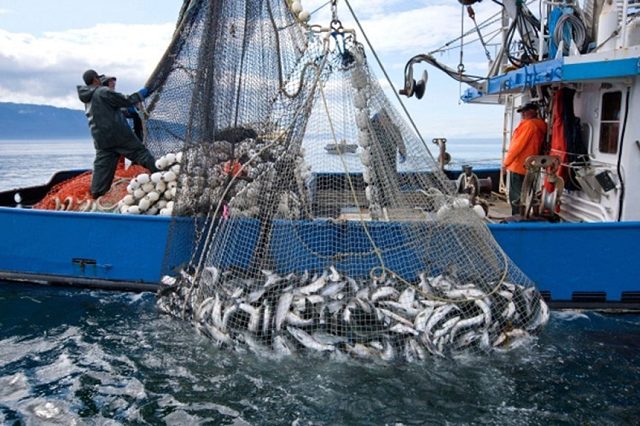A motion sponsored by the Representative of Eket Federal Constituency in the House of Representatives, Patrick Ifon, noted that Nigeria loses $70 million to illegal fishing.
The motion followed the call for the ‘Need to curb fishing by foreign vessels on Nigeria’s territorial waters’.
Ifon stated that a country like Nigeria, rich in “marine species” and bound by a large coastal area, imports fish from China and the Netherlands, making Nigeria the fourth largest importer of fish in the world.
He said, “The House is aware that Nigeria as a nation with the large coastal area is rich in marine species, yet over half of the fish being consumed are imported from China and Netherland, thus placing Nigeria’s production of fish at 759.828 metric tons annually, according to the Report of the World Fish Centre in 2017.
“The House is also aware that Nigeria is the 4th largest importer of fish in the world with about 2 million metric tons per annum for an estimated population of over 200 million people.
“The House is worried that Nigeria loses a whopping sum of $70 million annually to Chinese and other European Trawlers due to illegal fishing activities in the nation’s waters as observed by the Nigerian Navy in 2017.
“The House is also worried that despite Nigeria non-fishing agreement and arrangements with distant nations such as China and the European Union, illegal fishing on Nigeria’s waters persists due to bilateral agreements with the nearby Country of Sao Tome and Principe.
READ ALSO: MTN Owed N40.3bn By Banks, Pushes For Stronger Stakeholder Relationships
“The House is concerned by the Overseas Development Institute’s Report of 2018 that illegal fishing boats from China, Netherlands and Spain operating in the Country’s territorial waters commonly transfer catches from their trawlers into container and cargo vessels on the high seas, thereby flouting quota regulations.”
The lawmaker highlighted the negative impact of unregulated fishing on Nigeria’s economy, stating that it posed security threats to the country’s waters.
He said, “The House is also concerned that the Gulf of Guinea Commission which was established in 2001 to check issues bordering on fisheries beyond 20 nautical miles of each member nation is yet to come up with a legally binding framework to tackle illegal fishing activities.
“The House is further concerned that illegal and unregulated fishing in Nigeria’s waters undermines the economy, poses a security threat to the nation’s territorial waters, degrades the coastal communities and renders artisan fishermen redundant.”












